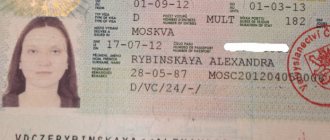Salaries by profession in 2021
Prague for tourists and foreign workers is a city of opportunities, since it is the tourist mecca of the Czech Republic and there are opportunities to find employment, both in production and in the field of infrastructure.
People of different professions in the Czech Republic have different incomes. The amount of wages is also affected by the workload and experience of the employee.
According to data published by ISPV (Information System for Average Earnings) for the 3rd quarter of 2021, the average gross salary in the Czech Republic by industry was:
- Agriculture, forestry and fishing 29,358 CZK
- Mining 38,177 CZK
- Manufacturing industry 35,035 CZK
- Production and distribution of electricity, gas, heat 47,642 Kč
- Water supply, waste related activities 31,119 CZK /
- Construction 31,681 CZK
- Shops, car and vehicle repairs 33,073 CZK
- Transportation and storage 33,129 CZK
- Accommodation, meals and hotels 21,259 CZK
- Information and communication activities 59 436 CZK
- Cash industry and insurance 57 593 Kč
- Real estate activities 30,244 CZK
- Professional, scientific and technical activities 42,020 CZK
- Administrative and support activities CZK 24,569
- Public administration, defense, social security 38,910 CZK
- Education 35 437 CZK
- Health care and social security 38,316 CZK
- Cultural and entertainment events 30 350 CZK
- Other activities 26,272 CZK
Minimum wage
The minimum wage in the Czech Republic is calculated for 1 month of work or 1 hour. Gross salary – this is what the minimum salary is called (without insurance, social contributions and taxes).
In January 2021, the minimum wage for Czechs was established at CZK 14,600 per month (or €575).
average salary
The Ministry of Labor and Social Protection has published data according to which the average salary in the Czech Republic is 32,466 Kč or €1,276 (taxes have not yet been deducted from this amount). If we compare the salary that was at the beginning of 2021, it increased by 7.4%.
A continuous increase in wages has been observed in the Czech Republic since 2014. The authorities are taking all possible actions to ensure that the working population does not leave the country and qualified personnel do not migrate. The size of the salary is influenced by such factors as the gender of the employee, the company in which he works, qualifications, length of service, and place of residence. Thus, employees of large companies have an income of 400 euros more than in small companies, and women earn 250 euros less than men.
Average starting salary
The salary of an experienced worker and a beginner is usually 200-250 euros less. This difference also depends on qualifications and education. On average, a specialist with a higher education without work experience starts with a rate of 1,100 euros. In 3-5 years it can increase by 250 euros. If the starting salary of specialists in blue-collar professions, and even migrants, is estimated, then this amount may be 30% less.
MINIMUM SALARY IN THE CZECH REPUBLIC
According to the Czech government, the official minimum wage in the Czech Republic as of January 1, 2021 is 15,200 CZK per month , equivalent to $720. Compared to the same period last year, the rate increased by 600 kroons ($28.5) or 4%. Over the past 6 years, the minimum wage for Czech workers has increased by 6,000 crowns - from 9,200 crowns in 2015 to 15,200 in 2021.
Employment in the Czech Republic during a standard 40-hour work week guarantees the employee a minimum wage, the amount of which depends on the level of complexity, responsibility and intensity of work. These parameters form so-called working groups. In total, Czech legislation provides for 8 working groups.
GUARANTEED MINIMUM SALARY IN THE CZECH REPUBLIC
| Working group | CZK/dollars per hour | CZK/dollars per month |
| 1 | 90,50/4,3 | 15 200/720 |
| 2 | 99,90/4,7 | 16 800/800 |
| 3 | 110,30/5,2 | 18 500/880 |
| 4 | 121,80/5,8 | 20 500/975 |
| 5 | 134,40/6,4 | 22 600/1 075 |
| 6 | 148,40/7,1 | 24 900/1 185 |
| 7 | 163,90/7,8 | 27 500/1 305 |
| 8 | 181/8,6 | 30 400/1 445 |
Note : The highest level of minimum wage in the Czech Republic (20,400 CZK per month – group 8) is usually set for specialists such as a director of finance and sales or a broker in the financial and capital markets. The minimum wage (15,200 CZK per month - group 1) is provided for professions that do not require a high level of qualifications - kitchen assistant, seamstress, storekeeper, salesperson, cleaner, courier.
For a working week of less than 40 hours, the minimum wage rates in the Czech Republic are as follows:
- Working week 38.75 hours – 93.42 CZK per hour ($4.4)
- Working week 37.50 hours – 96.53 CZK per hour ($4.6)
How much do foreigners earn on average in the Czech Republic?
The Czech Migration Service claims that the number of migrants in the country in recent years has reached about 500 thousand people. Almost half of the migrants come from Slovakia, Ukraine, and Russia.
The average salary in the Czech Republic for foreigners is about 650 euros. Of course, this amount can be higher, it all depends on the position and qualifications of the employee. Thus, general workers can receive up to 500 euros, but specialists with knowledge of the Czech language and qualifications and experience can expect to be paid up to 1,100 euros.
Foreigners may also be offered hourly wages if they work more than 8 hours a day. In this case, the payment can vary from 2.7 to 4.6 euros per hour. It is advisable for foreigners to register officially or sign an employment contract and clarify all the nuances of cooperation in advance.
Real income level
- Music teacher $1300;
- Director of a comprehensive school $2,700;
- Builder-general worker $1650;
- Construction foreman $3200;
- City policeman $1200;
- Average pension $1200;
- Cleaning lady in a large company $700;
- Security guard $700.
Of course, the average salary in the Czech Republic also varies depending on the city of residence.
The largest employers in the Czech Republic in 2021 can be called large corporations - the Czech Post employs a large number of citizens (remarkably - of all age categories), the ČEZ energy enterprise also has a large staff of employees in all regions. Less popular, but also very large-scale, are such employers as Skoda and the Czech Railways.
The highest salaries can be observed in the finance sector, as well as in the IT and energy sectors. Sectors such as finance and banking, telecommunications, the auto industry, and the tourism sector are experiencing a constant shortage of personnel. A person’s salary depends largely on the direction of his profession. Here, the most in demand are employees of the intellectual sphere who bring some benefit to society.
Social professions such as teachers or doctors bring in a national average salary of about $750 (the difference between metropolitan and regional earnings can reach 50%).
Wages by city and region
It is logical that large salaries are concentrated in large cities and the capital, since this is where most of the industry and infrastructure are concentrated. Often the average salary in the capital is 40% higher than in small towns.
If we compare salaries in the Czech Republic by region and city, Prague is expectedly in first place, with an average salary of CZK 32,884. In second place in terms of earnings is the Central Bohemian Region (29,654 CZK), and in third place is the Pilsen Region (29,245 CZK). Further average salaries are distributed as follows:
- Liberec region
- Karlovy Vary region
- South Moravian Region
- Vysočina
- Pardubice region
- Usti region
- South Bohemian Region
- Zlín region
- Moravian-Silesian region
- Olomouc Region
- Kralove Hradeck region
What taxes will you have to pay in the Czech Republic?
The personal income tax or personal income tax in the Czech Republic is one of the lowest in the European Union and amounts to 15%. This amount is charged from salaries, dividends, deposits, shares, and sales of apartments. Very often, residents of the country are exempt from paying this tax or pay less - for example, students, people who earn little, families with children under 26 years of age, parents of disabled people and others.
Due to the fact that deductions differ for different categories of the population, it is customary to indicate the “rough” salary in job advertisements, that is, the amount before taxes. Anyone can calculate their net salary on their own using special calculators on the Internet.
Health and social insurance taxes (pension, maternity leave, sick leave, unemployment) are also required to be levied on wages.
Salary taxes
According to the laws of the Czech Republic, taxes are required to be paid by permanent residents of the country and those who stay in the country for more than 185 days a year. Taxes here are paid individually. Unlike other European countries, joint tax payment by a married couple is prohibited. The total amount of taxes that a resident of the country must pay is 26%.
If a person spends half the year in the Czech Republic and the second in another country, he will not need to pay double tax, since a special convention has been signed between most European countries and the Czech Republic.
Income tax
The income tax for the country's employees is 15%. This % is stable. In the Czech Republic, income tax does not increase with salary increases. There may be exceptions only for private entrepreneurs. If their income is less than 16 thousand euros for 12 months, they may not pay income tax. If more, then another 7% is added to the standard 15%. In this case, the tax is imposed only on net profit.
Legal entities pay an income tax of 19% on their profits.
Social contributions and other taxes
In addition to income tax, insurance and social benefits are collected from Czech workers. The total amount of such taxes is 11%. This includes health and social insurance. Not only employees, but also their employers are taxed: they must pay 25% to the social fund and 9% of their earnings to pay for health insurance.
Those who own Czech real estate also pay taxes. Usually this is no more than 60 euros for 12 months.
Also no less popular taxes are the tax on sold real estate, transport tax, and television tax. You should not pay taxes if you have shares, receive an inheritance, or receive large property as a gift, if you have income from movable property.
Taxes and social contributions
The total amount of taxes and social contributions ranges from 15 to 26%, depending on income. The lower the salary, the lower the payments to the state budget. For example, with a salary of 20,000 Kč (70,001 rubles), the amount of deductions will be 21%.
The country also has a system of tax discounts. They are given for the number of children, marriage, student status. Otherwise, the tax is calculated for working pensioners or disabled people.
There are also tax benefits for foreigners who stayed to work in the Czech Republic after studying. Their size is about 5-10%.
Contributions to insurance and pension funds amount to 11% of wages. The employer also makes additional contributions to pensions and social insurance.
After paying all taxes and contributions, an employee in the Czech Republic receives 2-2.5 times more money than in Russia.
Ratio of salary and living expenses, cost of living
Most of the Czech population, especially migrants or those who have recently received permanent residence, consider renting an apartment to be their main expense. Prices, of course, are different, but you can rent a one-room apartment for 350 euros, and a 2-room apartment for 600 euros. In smaller cities prices are slightly lower and range from 260 to 380 euros. Those who want to purchase real estate should take into account that 1 sq.m. will cost from 2000 euros.
Utilities are also not a small expense item for residents and depend on the size of the apartment and partly on seasonality. Depending on the number of rooms, a communal apartment costs the average resident 100-200 euros.
Prices for food are quite affordable and for the average family the cost of a month’s food can cost up to 550 euros. A monthly travel ticket for 1 person will cost up to 30 euros.
Medical care for almost all categories of the population is free through taxes and health insurance. Only women on maternity leave, small children and people of retirement age have state insurance.
Who has tax benefits in the Czech Republic?
The following are exempt from tax or have significant benefits:
- students who work part-time;
- people with low wages;
- parents of disabled children or just parents (the discount depends on the number of children in the family).
See also: Jobs in Korea without knowledge of the language
Those whose spouse is not working also do not pay tax or have benefits. And with a minimum wage, a person is completely exempt from personal income tax.
For those who earn more than CZK 1,296,288 per year, there is an additional salary tax of 7%. True, there are not many such people.
What does the employer pay and what does the employee pay?
The employer pays part of the taxes for each employee:
- to the social insurance fund - 25%;
- to the health insurance fund – 9%.
And the worker himself pays from his salary:
- to the social insurance fund – 6.5%;
- to the health insurance fund - 4.5%.
That is, the employer pays the bulk of taxes. And this reduces social tension due to the large difference in income between the employer and the hired worker. Thus, if the salary is 20 thousand crowns, then after deducting all taxes, a person receives 15,850 crowns in hand.
Unemployment rate and migrants' prospects
The Czechs managed to reduce the unemployment rate to 3% - one of the lowest in Europe. But, despite such indicators, in recent years there has been a shortage of qualified personnel in the country. The Czech Republic receives a large number of migrants - foreign labor, but local residents also go in search of better earnings to the countries of Western Europe and Scandinavia. This has led to the fact that the Czechs offer more than 200 thousand vacant jobs of various qualifications.
Among the higher-paying jobs are work as web designers and programmers, managers and engineers, pharmacists and doctors, ecologists and chemists.
There are many vacancies in trade, the service sector, security guards, salespeople, consultants, drivers, construction workers, waiters, cleaners, cooks.
A big plus for young foreign workers is that they have a great chance of finding a job here without experience.
Immigration and international companies in the Czech Republic
At the moment, the major cities of the Czech Republic, especially the capital Prague and the Moravian metropolis Brno, are experiencing an unprecedented economic boom, associated, among other things, with the presence of wealthy international companies in them. Often these newly arrived corporations offer salaries that are far from Czech and are able to bring their employees to a high international level. In addition, such companies often have branches not only throughout the European Union, but also in other countries of the world, thanks to which they are easily able to organize not only a business trip for an employee, but also a transfer. While there is a shortage of personnel on the Czech market, we, foreigners, also have a very real chance to get a job in such a company and take our lives to a new level, both financially and in terms of growth and career development.
Immigration costs
To confirm your diploma and start working as a doctor in the Czech Republic, you will need the following expenses:
- Diploma nostrification: administrative fee 3000 CZK (115 €), certification of translation from Russian into Czech - 300 CZK (11.5 €) per 1 page, that is, about 50 €.
- Notarized translation into Czech – 700 – 1200 rubles (9 -17 €) for each document.
- Language courses: tuition 2500-5200 €, accommodation 600-2500 €, meals 900-2000 € for the entire period.
- Specialized training: 370 € for dentists, 540 € for doctors of other specialties.
- Approbation: application fee 2000 CZK (77 €), taking tests 1500 CZK (58 €), oral exam 4000 CZK (154 €).
- Labor card and labor visa: translation and certification of documents up to 70 €, fees for a labor card 135 €, medical insurance 50-60 €, consular fee for a long-term visa – 95 €.
In total, you will spend from 5160 to 16000 € on preparation for work. True, during the internship, if it is paid and with housing provided, you can earn 2500-4000 €.










